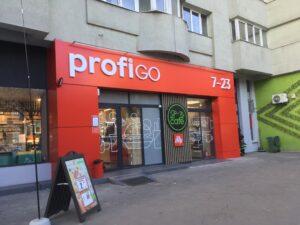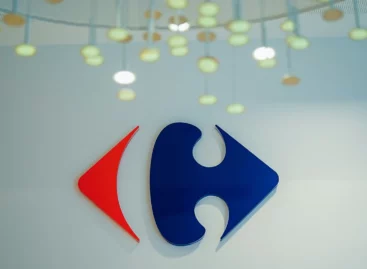Żabka plans to conquer urban Romania
Żabka’s Romanian offshoot, Froo, is targeting two hundred new stores by the end of the year. The retail map for urban convenience stores in larger Romanian cities is still largely unoccupied. Several other players plan to boost their presence in the convenience retail niche. Froo’s franchised expansion model will be crucial for the growth of its store network. Compared to Poland, retail franchising in Romania is still in its infancy.

Third-ranked national grocer Profi has started expanding with its Profi Go convenience format into urban neighbourhoods

Sebastian Rennack
international retail analyst
Polish convenience leader Żabka has set its sights on the Romanian market. The retailer has opened its first five convenience stores under the ‘Froo’ banner in the capital, Bucharest. By the end of the year, the store network is expected to grow to 200 locations, mostly in urban areas.
According to NielsenIQ data, by the end of 2023 the convenience store segment took 13% share of the total grocery market, growing 16.4% year-on-year. Only discounters grew faster, up 20.8% over the same period.
Froo so far does not face strong competition in the promising convenience retail segment. The main competitor in the food retail market, the third-largest retailer in the country, Profi Rom Food, operates around 1,780 small neighbourhood stores under various banners. These include the Profi Go store concept, which is positioned in direct competition with Froo. Both retail banners have sales areas of between 50 and 100 square metres and an assortment of around 2,500 SKUs, with a focus on food-to-go and fresh products. With just over 100 stores across the country, Profi Go is not yet a serious threat to Froo. However, if the proposed acquisition of Profi by supermarket and convenience store operator Mega Image is approved, new ownership could mean a change in strategy and pace of development.
The main competition is likely to come from near-retail foodservice operators. In addition to Froo, there is another new entrant in the convenience segment, Good2Go, which opened its first store in Bucharest in January and plans to expand to 15 stores by the end of 2024. Its medium-term goals sound more modest than Froo’s: Over the next five years, Good2Go aims to open a total of 200 stores.
However, the Good2Go store includes a ‘5 to Go’ coffee corner. The mixed concept of food service and food retail could pose serious competition for Froo in the future. The 5 to Go brand has been active in the Romanian market since 2015, and is known for its value proposition. In the past, coffee shops sold coffee for 5 Romanian lei (around 1 euro). Of the current 500 coffee shops, more than half are located in the capital. In addition, the company plans to evolve its packaged food offer this year. Last year, 5 to Go achieved a net turnover of 40 million euros. This year, 5 to Go’s plans include an expansion into 40 new cities across Romania, opening an average of one store every two days.
The direct battle in the convenience niche will be fought in the franchise arena. According to the UK’s Institute of Grocery Distribution IGD, the share of traditional retail, consisting of independent mom & pop shops and smaller regional chains, was at 34.1% of the grocery market in Romania in 2023. For Poland this figure came to 16.9% in the same period. The main difference between both retail frameworks, however, is the existence of an estimated 50,000+ franchised stores in Poland, while the franchise concept in Romania is still in its infancy. According to Romanian retail portal Revistaprogresiv.ro, Profi ended last year with around 1,400 partner stores. From 15% of the total store network in 2019, the share of franchised stores had reached 80% in 2023.
Related news
Mere in Lithuania: Rapid growth and a hard discount niche left open by Lidl
🎧 Hallgasd a cikket: Lejátszás Szünet Folytatás Leállítás Nyelv: Auto…
Read more >Related news
(HU) A nap mondása
🎧 Hallgasd a cikket: Lejátszás Szünet Folytatás Leállítás Nyelv: Auto…
Read more >









